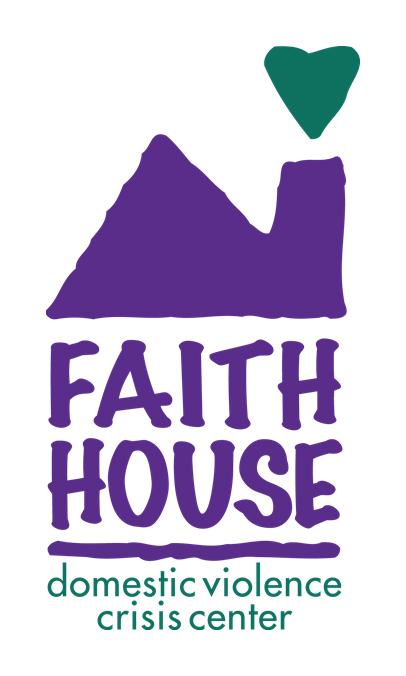Knowledge is Power
Learning about domestic violence keeps you informed of your safety and risks as well as helps you offer assistance to a friend or family member in an abusive intimate partnership.
Domestic violence is a pattern of behavior that one person uses to gain power and control over the other. These behaviors force victims to make decisions based on how their partner will react. This takes away the victim’s autonomy. Autonomy means the ability to make your own choices free from external control. Everyone has the right to make their own choices in relationships. As someone who wants to help, you can work to return some of those choices that have been taken away by domestic violence.
Forms of Domestic Abuse

PHYSICAL abuse

Sexual abuse
Sexual abuse may include: physically forcing sex, making you feel fearful about saying no to sex, forcing sex with other partners, forcing you to participate in demeaning or degrading sexual acts, violence or name-calling during sex, and denying contraception or protection from sexually transmitted diseases.

emotional abuse

financial abuse
Some forms of financial abuse include: giving you an allowance, not letting you have your own money, hiding family assets, running up debt, interfering with your job, and ruining your credit.
Myths About Domestic Violence
MYTH: Alcohol/Drugs/Stress cause battering behavior.
FACT:Alcohol, drugs, anger, and/or stress do not cause domestic violence. Many people who use alcohol and drugs are not and have never been abusive. All people experience anger or stress but most do not use that as a way to justify abuse. Domestic violence is a choice.
MYTH: Once someone has been abused once, they continue to engage in abusive relationships.
FACT: Only 33% of survivors report more than one abusive relationship in their lifetime. Furthermore, no one, including people who have been abused before, seeks abusive relationships.
MYTH: People who are abused have low self-esteem. Otherwise, they would not allow someone to treat them that way.
FACT: Abuse can happen to anyone, even those with high self-esteem. Nearly every person who comes in for assistance begins by saying some variation of “I never thought this would happen to me” or “I’m not the kind of person to be in this situation.” When a person has been emotionally and verbally abused over a period of time their self-esteem will suffer, so a more accurate statement would be that low self-esteem can be a result of being abused.
MYTH: The victim provokes the abuser and the abusive incident occurs because the person loses control in the face of the provocation.
FACT:Abusers are very much in control even when a violent incident is taking place. They control who witnesses the abuse, where it occurs and who they are violent with. Domestic Violence is a pattern of behavior designed to gain power and control. Even if you are aware of only one violent event, there are likely many behaviors that are taking place in private. In addition, many abusers do not react violently when they are “provoked” by people other than their intimate partner.
The fact is that no one deserves to be abused. Everyone has the right to live free of control and violence.
MYTH: Women are just as violent as men.
FACT: In approximately 93% of domestic assaults, the man is the perpetrator. (US Bureau of Justice)
MYTH: People experiencing domestic violence always go back to their abuser.
FACT: Leaving an abusive relationship is hard and it can sometimes take a few tries before the person is able to leave safely and successfully. However, this does not mean that they always return. Everyday many survivors are leaving their abusers permanently. There are many communities that have groups of survivors who speak out about their experiences leaving abusers. Check out VOICES of Acadiana to read a few stories from survivors in our community.
Give the victim 3 assurances:
You don’t deserve this · It’s not your fault · I believe you
Particularly risky things to listen for:

Stalking and monitoring day to day activities

Threats or assault with a weapon particularly while having continued access to weapons

Strangulation

Suicide threats

Recent separation
Are you feeling worried?
Friends and family members frequently reach out to us and report feeling particularly uneasy about the domestic violence relationship.
If you are hearing or seeing something that makes you concerned they are in immediate danger, you can call or have the survivor call the hotline to come up with a plan to stay as safe as possible.
How can I support someone
experiencing domestic violence?
Sometimes knowing what to say and how to react to someone disclosing abuse to you can be difficult. Survivors are more likely to turn to their community (friends and family) than they are to professionals. One of the most important things you can do for your loved ones is to be there for them in times of need. These tips below can help you navigate through these types of difficult situations.
If someone discloses abuse:

RESPECT
“You get to choose what to do next.”
“I will not speak of this to anyone without your permission.”
“You have the ability to decide what’s best for yourself.”

BELIEVE
“You are a good person.”
“I’ve noticed something was not quite right, thank you for sharing this with me.”

ACKNOWLEDGE
“I’m so sorry you’ve experienced all of this.”

RESOURCES
“I’m not sure what your options are, but I can help you get connected to someone who does.”
Did you know?
Survivors report that the most helpful thing someone can do is to listen without judgement, without your own agenda, without giving them ultimatums and without making them feel responsible for your feelings about the situation. Stay connected to your friend. The more a survivor is isolated, the more control an abuser has over their lives. Let them know what support they can expect to receive from you. This may be a listening ear, a place to stay if the person is planning to leave, going with them to speak to an advocate, a ride or a whole host of other things specific to what that person needs.
It can take a long time for things to get better and it can be difficult to hang in there through it all. We know it’s really hard to stay connected when you’re worried and scared and nothing seems to be changing. If you need help, talk to your trusted people and reach out to experts. Take a break if you need it.
